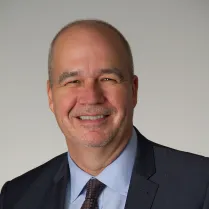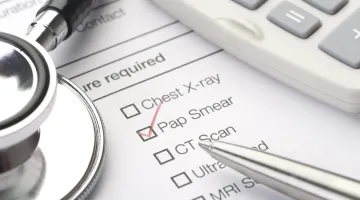Your Questions about Behavioral Health, Answered
Author

Antony Sheehan, President & CEO, Aspire Health Alliance
We all know that if you are sick you pay a visit your doctor. But what do you do if you are a new mom suffering from post-partum depression? Or your child is being bullied in school? Or if you are battling substance use disorder? What’s the best way to get the help you need?
As I always say, there is no health without mental health. So I was proud to participate in the partnership between South Shore Health and WCVB-TV called One Healthy Boston to talk about this important issue. I recently answered some questions about behavioral health from Facebook users. Here are some highlights from the conversation.
If you missed the conversation, you can watch the full video here!
What is behavioral health?
Behavioral health is a term used as shorthand to cover both mental health and substance use services, it’s something of an industry term. Most people, who think about mental health, think about common illnesses like depression, anxiety phobias and the like. Behavioral health services often provide support to people with those conditions but also cover a broader array of challenges, including substance use disorders.
What are the first steps I should take to get help for a mental health or substance use disorder?
I would absolutely start by speaking with my primary care provider. More and more primary care clinicians have a deep understanding of behavioral health issues and the need to respond effectively. Many primary care doctors are equipped, trained, and supported to treat common mental health disorders.
Some people choose to seek help through creditable resource directories of therapists and other behavioral health providers. In the State of Massachusetts there are some excellent resources and directories online, including this resource site from the Massachusetts Department of Mental Health. Psychology Today has a helpful site to find a therapist. If you need a community-based resource, check out South Shore Health’s Community Resource Directory for resources near you.
There is also a vibrant system of community behavioral health providers in Massachusetts. For example, at Aspire Health Alliance, we provide a variety of outpatient services for people of all ages, facing a wide variety of mental health and substance use disorder issues. If people don’t want to go through their primary care physician, there are many other choices.
What if I encounter somebody whom I suspect needs help? What should I do as a bystander?
It depends on the circumstance. If you’re facing an emergency situation, such as a drug overdose or someone threatening to harm themselves or others, call 911.
In a non-emergency situation, it’s easy to wonder whether one should intervene. Sometimes, if it is appropriate, simple interventions are really effective.
You might ask:
- “Is everything okay?”
- “Can I help you?”
- “Do you need me to make a call for you?”
Those small interventions are often supportive, helpful, and meaningful and can make a real difference to someone in a distressed situation.
How do you talk to your loved one who you think may need help?
Mental health and substance use disorder challenges cause ripples that can affect the whole family, this is important to acknowledge. Whilst families are important sources of support to loved ones facing behavioral health disorders, communication can also be challenging.
Of course in a loving and supportive relationship, one would hope that it is possible to ask,
- “Are you okay?”
- “Should we talk about this?”
- “Should we talk to somebody else about these things?”
I would encourage people to seek out advice and help in terms of framing questions and dialogue, and ultimately getting the help that the family member needs.
How can parents talk to their children about behavioral health issues?
Parents in particular should feel free to make contact with behavioral health services or their primary care providers and ask for help starting a conversation with their child. Be open about the behaviors that you have concerns about.
As we attempt to shift the location and nature of support we provide in behavioral health services, there is the possibility of home visits, so families can get support and help with those difficult but necessary conversations. Our website has more information about our in-home services.
What is the Words Matter campaign?
The Words Matter campaign gets at a key issue for those of us who work in healthcare and, more importantly, those who experience substance use disorder and mental health challenges. That key issue is the stigma associated with behavioral health conditions.
Throughout my career, I have learned that people that we care for face two taxing issues that intersect: first, their mental health or addiction challenge, and secondly, the view society has of their illness.
We simply wouldn’t use pejorative terms to describe somebody coping with cancer or heart disease, so why should we use words like “junkie” or “psycho” to describe those dealing with behavioral health challenges? We must use appropriate language that expresses these conditions as health problems, which is actually what they are.
The Words Matter campaign is about raising awareness of these harmful words for both caregivers and the public.
We’re proud to collaborate with our colleagues at the Grayken Center for Addiction Medicine at Boston Medical Center on this educational program. Learn more about this campaign in the video below.
Thanks to all who took the time to ask a question and watch our conversation on Facebook Live!
Please visit the Aspire Health Alliance website to learn more about their services.
Author

Antony Sheehan, President & CEO, Aspire Health Alliance






